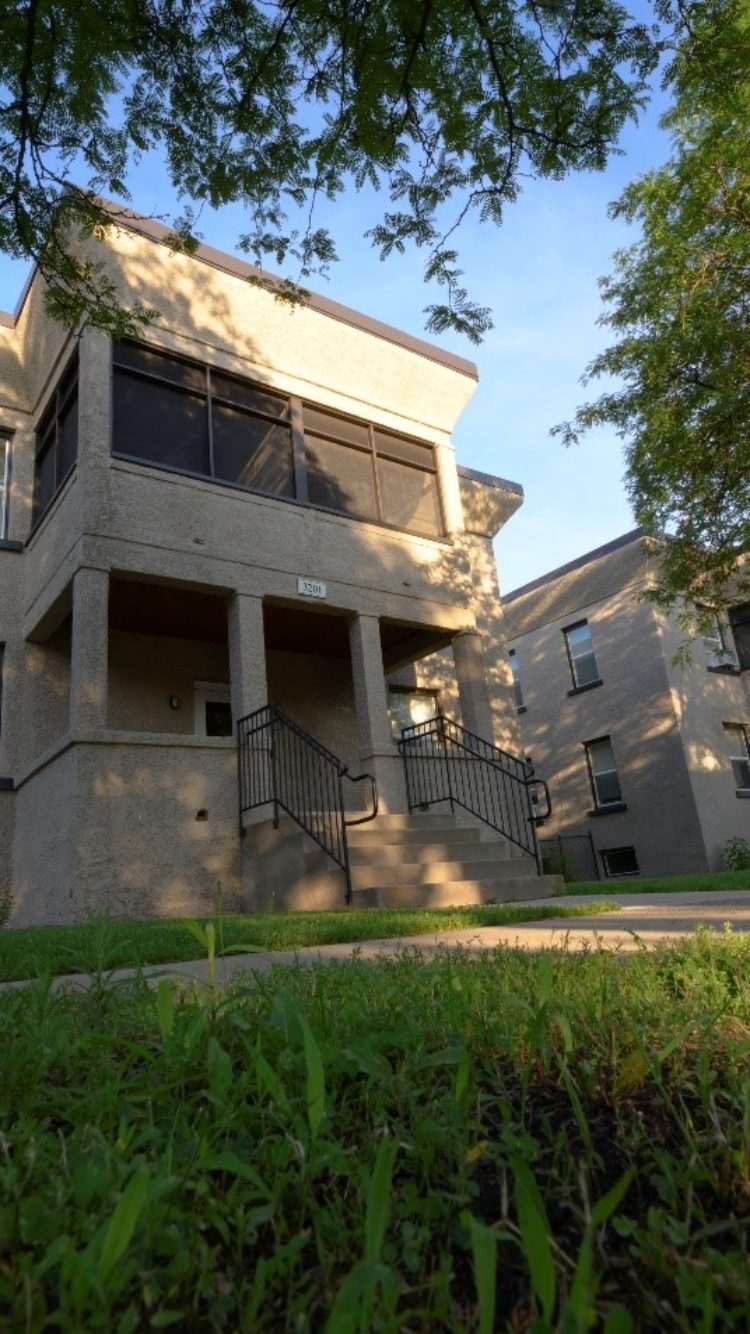Ensuring Twin Cities homes are safe and healthy
Family Housing Fund is dedicated to ensuring that rental homes throughout the region are safe and healthy. We recognize that substandard housing quality sometimes displaces renters, and our partners in public interest law observe habitability concerns or repair requests associated with many of the eviction cases for which they provide counsel. We have developed several, multifaceted strategies for improving rental housing quality and housing stability, described below.
This page serves as a living document for our work related to housing health and safety. These resources are intended to be utilized by renters, community organizations, legal counsel, city staff, courts, court-appointed administrators, and rental property owners and managers.
Landlord Training
Support for small, part-time, and new rental property owners and managers
To ensure rental property owners are equipped to maintain their health and safety of their properties, FHFund supports the work of HousingLink to provide a variety of landlord education and management tools that meet the unique needs of part-time, do-it-yourself landlords. HousingLink offers free online education modules for these landlords, working with local governments to ensure the modules include up-to-date information on local rules, regulations, and resources surrounding rental housing habitability.
Health and Safety Litigation
Legal help for renters
FHFund supports Mid-Minnesota Legal Aid, and Southern Minnesota Regional Legal Services to provide legal services to low-income renters concerned about the health and safety of their housing. These partners help impacted households address repair needs and remain stably housed, in addition to protecting the rental housing stock. They also cultivate referral networks and other collaboration with community-based organizations and local government, extending their ability to hear from households who need their support.
Habitability Fund
Financial support to litigate
FHFund has established a pool of funds to support habitability defenses in eviction cases when merited. Our partners in public interest law offer access to these funds in eligible cases at court, and tenants agree to replenish the fund upon receipt of a rent abatement order from a judge.
Regional Repair Resources
Facilitating Tenant Remedies Actions (TRAs)
In cases where unresponsive property management threatens the health and safety of multiple households or multiple properties, the city, the impacted renters, or a neighborhood organization may petition the court to intervene in a Tenants Remedies Action (TRA). In these cases, the court may appoint an interim landlord (called an administrator) to provide management and repair services for a period of time before returning management control of the property back to the owner. The success of an administrator’s efforts frequently relies on readily available sources of financing to make timely repairs. Importantly, it is an arrangement that requires the property owner to ultimately pay for those repairs.
- Family Housing Fund has created a RegionalRevolving Repair Fund (R3F) that is now available in certain jurisdictions to fund these repairs. Guidelines for access, use, and administration of the R3F are as follows:
- The process will begin with a TRA filed by a city, by tenants within an impacted building, or by a neighborhood organization as provided by state statute.
- Following appointment by the court, the administrator will contact Family Housing Fund to request funding, and will provide a written rationale outlining the following elements upon which the request will be evaluated. FHFund reserves the right to refuse consideration of requests that do not clearly outline the following elements.
- Administrator will seek court authorization to attach the debt as a lien against the property.
- Facts, and circumstances of the case, supported by written documentation based on the court record and any other relevant documents or evidence.
- Experience, track record, and reputation of the party requesting the funding, including whether the applicant is on FHFund’s current list of Qualified Rental Housing Administrators and Receivers.
- Estimated financing needs based on a physical evaluation of the property completed by a qualified building trades professional(s) engaged or employed by the administrator or property owner.
- Likelihood of attaching the loan as a first-position lien against the property, and overall likelihood of repayment, supported by a clearly articulated pathway and timeline to fund recovery.
- Overall plan for financing and timely completion of the court charge.
- Full recovery of funds is expected within 6 to 12 months. If the property owner or borrower fails to meet repayment terms, FHFund will pursue all its repayment options.
- A List of Qualified TRA Administrators is available as a resource for the courts. Through a collaborative process with leadership from local government, the private rental industry, and public interest law, FHFund developed a list of qualified firms to act as Court-appointed administrator or receiver when a Tenant Remedies Action is filed.
Priority Lein Legislation
Ensuring landlords pay for timely repairs in TRA Administrator cases
Occasionally, in the most egregious cases, a court-appointed TRA Administrator is ordered to fix extremely poor quality rental property conditions when the landlord repeatedly failed to remedy the issues. FHFund is helping lead the effort to pass state legislation that would amend the existing statute to allow for a priority lien to be placed against the property in such cases, ensuring timely repairs that are ultimately paid for by the landlord. In addition to allowing the priority lien, the proposed legislation would:
- Require notification to lien holders to allow mortgage holders to protect the property from further deterioration
- Allow for reasonable tenant attorney’s fees in such habitability actions
- Ensure that the State’s safety and habitability standard is not negotiable
Read our overview of the proposed priority lien legislation.

